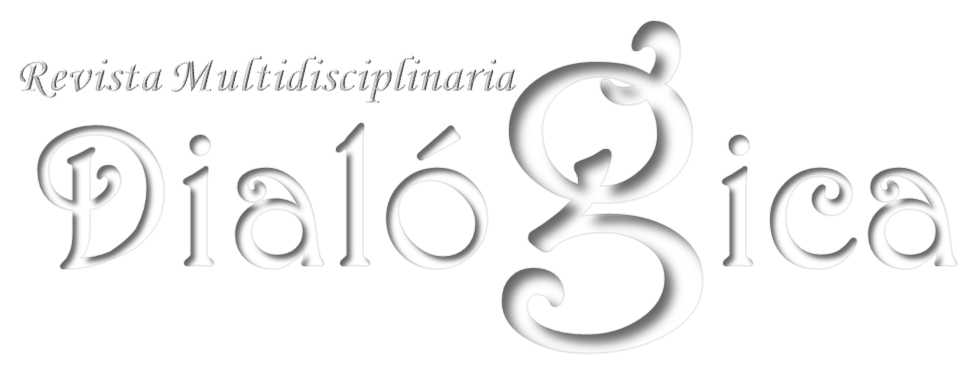TECHNOLOGICAL COMPETENCE AND TEACHING IN TIMES OF PANDEMIC
DOI:
https://doi.org/10.56219/dialgica.v18i1.1530Keywords:
Training in online processes, secondary education, ICTAbstract
In current times of a pandemic, remote teaching is activated through the use of various tools provided by Web 2.0. However, many of the users (mainly teachers) do not have the Technological Competence in their use as they should. Despite this, it is not ruled out that they are not capable of learning this competence (Ballesteros, 2002; Fuente-Cobo, 2017; Rampey, B. D .; Finnegan, R .; Goodman, M. and others, 2016). The purpose of this research is to explore the theoretical-methodological network in teaching through online processes from the epistemes of teachers of Middle Education in the high schools of Tinaquillo, Edo Cojedes. For this, three teachers (social agents), based on the phenomenological-interpretive paradigm, express their expertise. It is concluded that in the training of teachers in online processes for teaching that allow teacher-student-family interaction and collaboration, it can provide the architecture of new conceptual learning schemes.
References
Albarracín, H. (2013). Calidad, elearning pedagógico y andragógico. [Documento en línea]. Disponible: http://jorgealbarracin.net/andragogia.pdf [Consulta: 2017, Octubre 19]
Ballestero, F. (2002). La brecha digital. El riesgo de exclusión en la Sociedad de la Información. Fundación Retevisión
Bernárdez, M. (2007). Diseño Producción Implementación de E learning. Estados Unidos: Global Business Press. Indiana
Compaine, B. (2001). Digital Divide. Cambridge, Massachussets: The MIT Press.
Constitución de la República Bolivariana de Venezuela. (2000). Gaceta Oficial Nº 5.453. Extraordinario.
Cuevas Cordero, F. y García Fallas, J. (2014). Las TIC en la Formación Docente. Argentina. Congreso Iberoamericano de Ciencia, tecnología, innovación y educación. [Documento en línea]. Disponible: file:///C:/Users/ME/Downloads/1159.pdf [Consulta: 2017, Diciembre 15].
Fuente-Cobo, C. (2017). Públicos vulnerables y empoderamiento digital: el reto de una sociedad e inclusiva. El profesional de la información, 26(1), 5-12. https://doi.org/10.3145/epi.2017.ene.01
González, J. (2000). Perspectivas de la Educación para los medios en la Escuela de la sociedad del conocimiento. Revista Iberoamericana para la Educación la Ciencia y la Cultura, 24, 91–101.
Helsper, E. J. (2008). Digital inclusion: An analysis of social disadvantage and the information society. London: Department for Communities and Local Government. Disponible en https://goo.gl/RKJ12E
Iñiguez Berrozpe, T. y Marcaletti, F. (2016b). Participación de los Adultos Maduros en Actividades Educativas en España: Obstáculos y Factores Motivacionales. Acciones e Investigaciones Sociales, 36, 141-168. https://doi.org/10.26754/ojs_ais/ais.2016361491
Llorente, M. (2008). Aspectos fundamentales de la formación del profesorado en TIC. Píxel-Bit Revista de Medios y Educación, 31, 121-130.
Rampey, B. D.; Finnegan, R.; Goodman, M. et al. (2016). Skills of U.S. unemployed, young, and olderadults in sharper focus: Results from the Program for the International Assessment of Adult Competencies (PIAAC) 2012/2014: First Look (NCES 2016-039). Washington: American Institutes for Research. Disponible: https://goo.gl/nrRLFJ
Reder, S. (2015). Digital inclusion and digital literacy in the United States: a portrait from PIAAC’s Survey of Adult Skills. Washington: American Institutes for Research
Ricœur, P. (1987). La escuela fenomenológica. Paris, Libraire Philosophique.
UNESCO (2004). Las tecnologías de la información y la comunicación en la formación docente. Paris: Informe UNESCO.
Vanek, J. (2017). Using the PIAAC Framework for Problem Solving in Technology-Rich Environments to Guide Instruction: An Introduction for Adult Educators. Washington: PIAAC
Vygotski, L. (1995). El desarrollo de los procesos psicológicos superiores. Madrid: Visor.


 @revistadialogica
@revistadialogica DialogicaUPEL
DialogicaUPEL RevistaDialogicaUPELMaracay
RevistaDialogicaUPELMaracay dialógicaupel@gmail.com
dialógicaupel@gmail.com dialogicaupel.blogspot.com
dialogicaupel.blogspot.com https://issuu.com/dialogicaupel
https://issuu.com/dialogicaupel https://revistas.upel.edu.ve/index.php/dialogica/
https://revistas.upel.edu.ve/index.php/dialogica/









